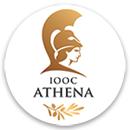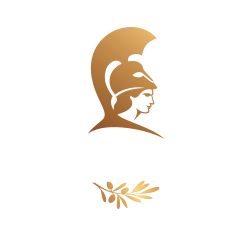FAQ
-
1. Why should I participate in an international olive oil competition that takes place in Greece? Open or Close
At ATHENA we believe that no two competitions are exactly alike, even though they may share the same judges and perhaps the same rules. We believe that competitions differ on the basis of the values they embody and the ambitions and aspirations of their organizers. At ATHENA we strive to organize a competition that is reliable, trustworthy and transparent, whose prizes actually mean something and are real quality indicators for consumers. First and foremost we respect the product itself and everything we do stems from this notion. Tasting conditions for our judges are never less than excellent and the whole assessment process has been thought through so as to ensure that every participating olive oil has the best chance of achieving a distinction. The fact that Greece has such a long tradition in olive oil production and consumption is in our eyes further proof of this competition’s special relationship with EVOOs from all over the world. Winning a prize at ATHENA really counts, for you and your clients.
-
2. Who are the judges at ATHENA IOOC? Open or Close
All jury members of ATHENA have extensive experience in the organoleptic assessment of olive oil and are certified tasters through national or international certification agencies. We invariably choose judges who are already experienced in assessing olive oils that come from many different countries and varietals. Nevertheless, we make the effort to also invite young and upcoming tasters who might not yet have had the opportunity to judge in the context of an international competition because we believe in helping create an ever-growing pool of experts. We are also strong believers in equal opportunity and therefore at least 50% of our tasting panel are women. Athena’s internal competition rules also stipulate that at least two thirds of our judges come from abroad. Although most of them already occupy prominent positions in their respective countries’ olive oil industries, our main concern ―besides having perfect tasters― is to invite judges from a variety of backgrounds. In 2021 the number of judges will grow from 20 to 25 to accommodate the projected increase in the number of samples.
Click here to see this year’s judges and their résumés. -
3. Can I be present during the proceedings? Open or Close
Although the competition takes place behind closed doors and is not open to the public, if you are an olive oil producer and happen to be in the area where the competition is taking place, we would be happy to meet with you and show you the tasting room and the jury at work. You are also welcome to attend the awards ceremony and reception at no extra cost.
-
4. My olive oil has been positively evaluated by an accredited organoleptic tasting panel and is already certified as an extra virgin olive oil. Why should I also send it to a competition? Open or Close
IOC-accredited organoleptic panels evaluate olive oils by determining their positive and negative characteristics in order to classify them in pre-defined categories (extra virgin olive oil, virgin olive oil or lampante), based on their fruitiness and the presence, absence or intensity of one or more defects. In international competitions judges assess samples in a more holistic way, evaluating all aspects of their flavour with an emphasis on their aromatic complexity, their harmony, the length and purity of their aftertaste, among other attributes. These elements are primordial to the overall assessment of the quality of an olive oil from a consumer’s point of view and also determine its stability over time. Also, when a sample is rewarded with a prize at an international competition, with judges from different countries sharing different perspectives, that signifies that it has the potential to thrive on the international market.
-
5. Why can my olive oil win an award in one competition and not in another? Open or Close
Assuming that we are talking about the exact same sample (without, for example, a qualitative alteration due to transportation or warehousing), there are several reasons that explain such discrepancies. Generally speaking, some competitions are stricter than others: although all samples are judged in absolute terms, i.e. not in comparison to one another, it is harder to shine in a competition where the overall quality is very high rather than the opposite. Also, a sample might have earned the same score in two competitions but not the same award, because not all competitions share the same score-medal structure. As is evident from the following table, some competitions no longer award bronze medals, indeed some competitions only award gold medals and beyond:

-
6. My olive oil is better than my neighbor’s… Open or Close
ATHENA and other similar competitions that assess olive oils are commonly called “competitions” but in fact participating olive oils do not compete against each other as in a race. For that to happen, samples would have to be judged in comparison to each other (as in Australian Wine Shows, whose primary objective is to improve quality at the production level), whereas here they are judged in absolute terms, on their own merits. Thus, when talking about international olive oil “competitions” it is best to view these events as procedures that bestow upon deserving products a quality label that, hopefully, the consumer recognizes and trusts. The fact that the world’s best olive oils invariably win the highest scores in all of the world’s top competitions testifies to both the credibility of the competitions and the consistency of the best producers.
-
7. My olive oil was deemed “defective”. There must be some mistake! Open or Close
At ATHENA we know how disappointing it is receive a letter announcing that an olive oil has been found “defective”, which is why we are extra careful with all samples that judges characterize as such. Our first guardrail is to ask our judges to be absolutely certain, “beyond a shadow of a doubt” that the sample in front of them is, indeed, “defective”. If that is the case, they must justify their decision by explaining why. Secondly, in order for a sample to be deemed defective there must be a majority of votes in that direction from the 5-member tasting panel. If only 1 or 2 judges out of 5 (the minority) think that a sample is defective, their score is not taken into consideration, the sample is not written off as defective and the final score is the average of the other judges only. Furthermore, at ATHENA, a sample can receive a low score (i.e. under 65 and no medal), without being classified as defective, because it may present various imperfections without being completely inadequate.
-
8. I am disappointed because my EVOO should have won a medal. Open or Close
Contrary to other competitions, ATHENA judges taste only in the morning (9 a.m. to 1 p.m.) and only up to 35 samples per day with as many breaks as necessary. They are under no pressure to expedite samples and they can take as much time as they need to taste and assess the olive oils (of course blind). The procedure is as follows: tasters sit at a large round table with a tablet and a notebook in front of them. Samples arrive already served at the right temperature in the special cobalt-blue tasting glasses. Judges taste and assess on their own without influencing one another and send their score to their table leader through their tablet. After all scores are uploaded (including the table leader’s), the table leader will announce the average score (and therefore the eventuality of a medal). At this point there may be a discussion ―especially if there is a big difference of opinion― and individual judges may change their scores in order to reach a consensus ―although this is not obligatory. After the score is finalized, the panel leader uploads it to the system and it is the sample’s definitive score. Judges are concentrated, to the point and in fact rarely make mistakes. Can a poor sample be rewarded a medal? The answer is: almost impossible. In serious international competitions, it is nowadays almost inconceivable that a defective olive oil wins a distinction. Can a worthy sample not receive a medal or one that does not reflect its true value? The answer is: unfortunately, yes. It is true that some samples might “slip through the cracks” and not receive the recognition they deserve. It has happened at ATHENA and it has happened in all other competitions in the world (except, of course, those that award gold medals to everyone). Does that make ATHENA any less trustworthy? Hardly, because it is a rare phenomenon and because, unjust as it may be for the wronged olive oil, it does not diminish in any way the primary mission of the competition, which is to certify for the consumer the quality of the best olive oils in the world.
-
9. How does ATHENA compare to other competitions pricewise? Open or Close
We believe that ATHENA has the best price/quality ratio of all international EVOO competitions: at €160 (and less) per sample during the extended early-bird period, participation costs are significantly lower compared to other competitions. Also at ATHENA there are no hidden costs. Everything is included in your original payment: your diploma (printed by us), your beautiful medal, postage and handling, your invitation to the awards ceremony reception. The only extra cost is for stickers of your medals which you may buy from us after the competition at a competitive price.
-
10. What makes ATHENA “transparent”? Open or Close
Contrary to other competitions, ATHENA always announces many months in advance its rules and regulations, the exact venue of the competition and the jury make-up. We also always disclose the exact number of samples we have received (256 in 2016, 430 in 2020), percentages of Greek and non-Greek samples and many other statistics concerning winning EVOOs. The whole tasting process is transparent and our judges know exactly how the assessment process works. Also, together with our judges we have developed a specific to ATHENA system that ensures the competition’s trustworthiness in relation to its results and further to this, in the weeks following the competition we proceed with cross-checks of some the award-winning EVOOs between samples sent and samples acquired.



